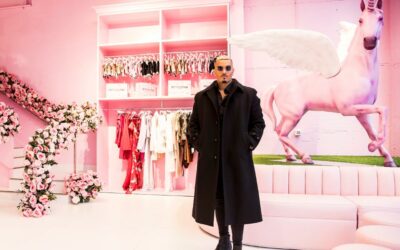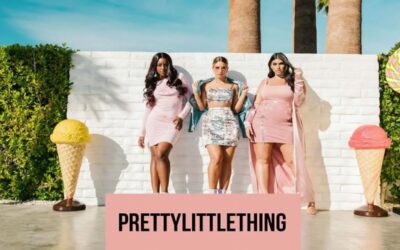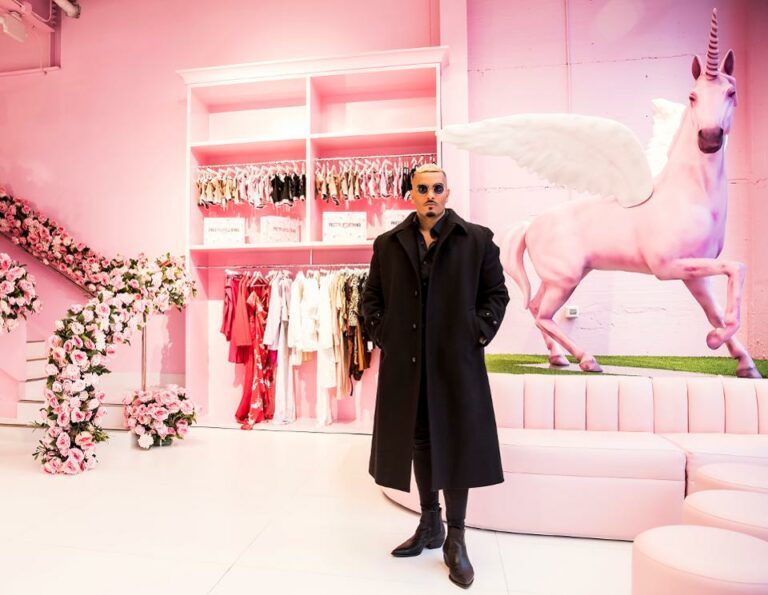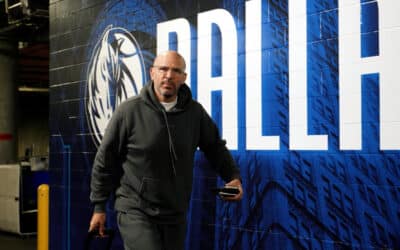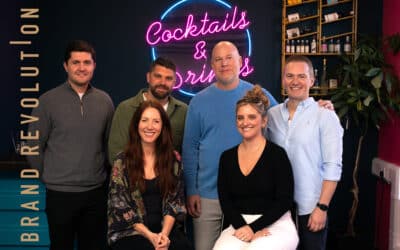Building global online fashion empire PrettyLittleThing at the age of just 24, Umar Kamani recently revealed his plans to step down as CEO with a vision to “build new brands” and “set new challenges and goals.”
After more than 10 years at the helm after first launching the fast fashion giant in Manchester alongside his brother Adam, PrettyLittleThing has since exponentially boomed with annual revenues in excess of £700m in 2022.
In a lengthy tweet, Kamani said when he first had the idea of setting up the brand he could “never have imagined what we could go on to achieve” citing the company’s “humble beginnings” in 2012.
In the post, he proudly reflected how the fashion brand has “eventually become one of the biggest fashion brands in the world.” But what has driven the success behind PrettyLittleThing and what’s next as Kamani prepares to hand over the reins, after he has become something of an online celebrity himself over the past decade?
As the son of billionaire Boohoo co-founder Mahmud Kamani growing up in Manchester, fashion has weaved itself into his family roots. His dad is a self-made millionaire, building Boohoo up from a market stall in Manchester. Umar’s grandfather, Abdullah Kamani, escaped war-torn Kenya in the 1960s. Selling handbags, he went on to launch wholesale textile business Pinstripe. It became a major supplier for high-street retailers from New Look to Primark, hiring Carol Kane in 1993 who went on to co-found Boohoo with Mahmud in 2006.
Whether you’re a fan of the family’s fast fashion empire or not, there’s no denying they’ve achieved meteoric success. In a similar backstory to his father and grandfather, PrettyLittleThing soon transitioned from the boot of a car to launching with 20 products online in 2012, after brothers Umar and Adam spotted a gap in the market for a fashionable yet affordable online brand.
It was when the Instagram influencer era was in full swing. Expensive watches, flash ferraris and luxurious lamborghinis were all the rage. Influencers emerging from reality TV shows from The Only Way is Essex to Love Island quickly became celebrities over the years, lured in by numerous brand deals as they flaunted their latest fashion hauls whilst racking up hundreds of thousands, if not millions, of followers.
“That was the zeitgeist at the time, when influencers and reality TV programmes were really taking off,” Catherine Shuttleworth, retail commentator and founder of Leeds-based Savvy Marketing, told Prolific North. “It was very of the moment and it was very much what young people wanted, led by girls and women. It was one of those things that sort of came from nowhere and burst onto the scene very quickly.”
At the same time, the online world was “revolutionising the way that people were shopping for clothes.” It’s proven to be a lucrative approach for PrettyLittleThing over the years, and for its CEO who hasn’t shied away from his lavish lifestyle on social media either, promoting the brand to 1.3m of his followers on Instagram.
Embracing a celebrity and influencer-heavy approach to marketing has seen key online collaborations between Kylie Jenner, Khloe Kardashian, Little Mix, Gemma Owen, and Love Island star Molly-Mae Hague – catapulting the brand to success and cementing its status as a household name.
After leaving the villa and becoming a brand ambassador in 2018, it wasn’t long before Molly-Mae Hague became PrettyLittleThing’s creative director for the UK and the EU in 2021.
—— @mollymaehague pic.twitter.com/7k8oKS5MvZ
— PrettyLittleThing (@OfficialPLT) August 27, 2021
Headquartered in Manchester, PrettyLittleThing has additional offices in LA, London and Paris with a number of showrooms. After first buying a 66% stake of the company in 2017, Boohoo snapped up its remaining shares in the company in 2020 in a major deal thought to be worth around £329m.
Although it might seem as though the power of the influencer marketing model is still in full force, younger shoppers are changing their attitudes towards fashion and a movement driven by creators on TikTok is surfacing – the age of the deinfluencer.
“PrettyLittleThing caught a moment when fast fashion was at its height. Pre-pandemic, younger shoppers were going out all the time, looking for different outfits and things to buy. It was quite revolutionary, to be able to buy that type of clothing at those prices and have them delivered so quickly to your home.
“Our attitude towards fast fashion, and fashion in general, was different then and those young shoppers who will now be in their late 20s or early 30s had a buy today, throw away tomorrow attitude which has changed.”
Influencers are changing too. “Influencers were people with big Instagram profiles mainly fuelled by reality TV. Now, some of the bigger influencers are on TikTok, which is much more self created and you can be an influencer from anywhere in different ways.”
Greenwashing accusations, banned ads and the future
Despite the brand’s successes, as with any fast fashion brand or retailer, PrettyLittleThing has faced it’s share of controversies too.
Alongside Boohoo, PrettyLittleThing has faced greenwashing accusations of its own following the launch of its PrettyLittleThing marketplace feature. The app allows users to buy and sell pre-owned garments from PLT and other fashion brands and although it was deemed as a positive move for the brand towards sustainability for some, others criticised the move.
Following complaints about how PrettyLittleThing has portrayed women in its advertising, The Advertising Standards Authority (ASA) has banned a number of the brand’s adverts.
An advert featuring 16-year-old Alabama Barker, the daughter of Blink 182 drummer Travis Barker, was axed for portraying a child in a “sexual way” last year. PrettyLittleThings said it “did not intend” to sexualise the teenager and at the time, disagreed that she was portrayed in a sexual manner.
The watchdog also banned an ad with a female model in 2020 for being “overly sexualised”. At the time, the online retailer said it did not set out to “create an ad which was deemed offensive and irresponsible”, adding it aspired to “promote a positive and healthy body image that was inclusive and empowered women.”
Although It has been a “successful business and done fantastic things,” those younger shoppers have “grown up a bit and moved on,” explained Shuttleworth. It presents a challenge for the future as the brand’s “exponential growth has now slowed.”
“With any brand like PrettyLittleThing, one of the challenges is how do you keep relevant, how do you keep up with your consumer as your consumer changes? They have a shift of new consumers coming in all the time. People are leaving that brand, growing up and then moving on. You have to replace them at the bottom with new young shoppers.”
But sustainabilty is still at the forefront. “We now have a generation of younger consumers where more sustainable solutions are important. That’s not to say that they stop buying clothes and wanting to go out – what they want is a more sustainable approach to it,” she said. “Younger shoppers will be much more more savvy with their cash and I don’t think it’s cool anymore to be into fast fashion.”
Do younger consumers care less about the “bling” now? It’s not just about what clothes are made of – they are “very interested in the ethics of companies and the way that the people who run those companies behave.”
“I admire them because they’re a self-made family but younger consumers might see Umar as a nepo baby,” said Shuttleworth. “It’s challenging enough in that market to stay relevant with the consumer, given there’s been this massive global world event with Covid that has made it even more difficult. Layer sustainability on top, maybe a change of leadership and a change of direction is exactly what they need.”

